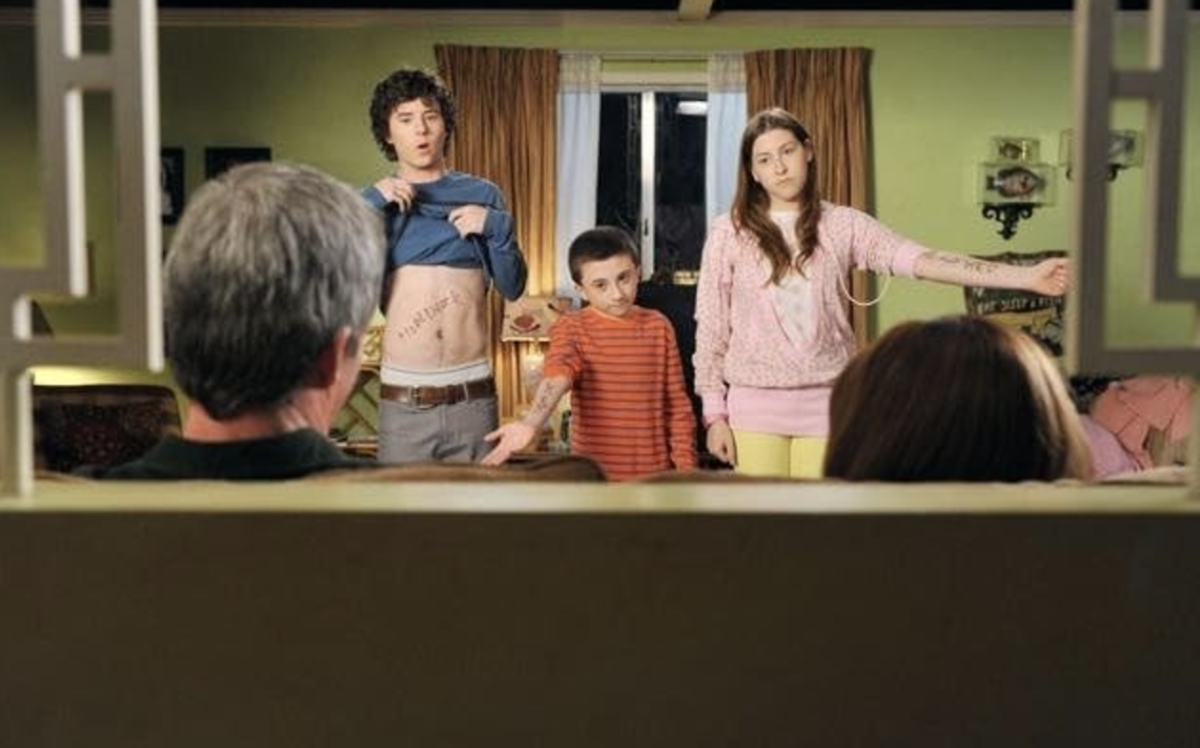
Say hello to Fox’s new underdogs, the “Red Band Society.”
With “Glee” practically out the door as it soon begins its last season, Fox has found its shiny new band of underappreciated misfits to attract younger viewers. And might I say, there’s potential, if only the series’ writers would treat their characters like real hospital patients and rethink how they’re sending their message.
So named because of the red surgery bracelets they all sport, the Red Band Society is a group of young teenagers facing debilitating illnesses who refuse to let sickness define them and group together to survive their hardships. They live in Ocean Park Hospital in Los Angeles, California and the series follows their attempts to live normal lives despite their afflictions. It’s clear right off the bat that the new series is riding on the coattails of contemporary books such as “The Fault in our Stars,” but unlike the romance novel, it’s attempting to send a greater message about patients and their illnesses. It needs improvement, however, before it can do so effectively.
The show begins with Charlie (Griffin Gluck), the narrator, who although in a coma, is very much a part of the society and highly aware of all the happenings around him. He introduces the audience to the rest of the group members. First, there’s Leo (Charlie Rowe), an adventurous teen who’s easily the leader of the group. In all his time at the hospital, he’s never had a roommate. That is, until society newcomer Jordi (Nolan Sotillo) arrives, and the two are housed together because they both suffer from bone cancer.
Leo clearly harbors feelings for Emma (Ciara Bravo), albeit the two pretend to hate each other. At first, Emma, who’s in the hospital because of an eating disorder, reciprocates, but she slowly develops feelings for Jordi, the beginnings of a love triangle I don’t want to see. There’s more than enough romance in most TV shows. I wonder when networks will begin to tackle important issues without entangling love in them.
Finally, there is Dash, the rambunctious group comedian whose trouble lies in his lungs, and Kara, another newcomer and your stereotypical bossy blonde cheerleader. Ironically, Kara’s issue is an enlarged heart, although most people might believe she figuratively doesn’t have one. They’re all overseen by Nurse Jackson (Octavia Spencer), a mean, loud-mouthed woman to the outside world, but a loving and caring mother figure in the hospital. Overall, the characters are funny and sweet and the dialogue is heartfelt, all of which are the highlights of the show.
Altogether, the series’ theme is important but misguided. For characters with illnesses, they appear too healthy. They’re bright and energetic, and other than Leo, pretty much intact. The lives they lead are almost too normal, given their circumstances. Some critics will argue that this is the writers’ intention, to normalize these kids and show them as people who are not defined by their illness and who continue to lead gratifying, happy lives. But in this pursuit, the writers should show truth, and sometimes, the grim truth is that illness can limit and weaken you. There is no shame in that.
If the writers’ intent is indeed to present characters who are not defined by their illness, they should strengthen their message by showing that their characters suffer, but they fight hard and still lead incredibly fulfilling lives. In Charlie’s words, they “survive what [they] do not want.” How is their message clear if we don’t see what these young patients are surviving?
Beyond that, I ask myself, “What kind of hospital is this?” I know it’s Los Angeles, but each kid has a highly decorative, enormous room. How rich are they? And they’ve got doctors who are highly acclaimed surgeons, but they let the patients drink and party on the roof? They even run around the hospital halls and race wheelchairs as if they’re in a playground.
In fairness, the narrator is an omniscient, comatose patient. So, maybe that isn’t much of a fantastical stretch.
All in all, given its intended message, the “Red Band Society” could be significant. With sweet characters and endless storyline possibilities, the series could underline vital points about illness and the people who confront it and empathetically and emotionally tug at America’s heartstrings. But it’s crucial that the writers hone their message now and do it justice.
It’s about time Fox found another important show. Later seasons of “Glee” took a major detour, but in the first few seasons, it highlighted many social issues and brought them to the national spotlight. Here’s to hoping that “Red Band Society” follows the right direction and avoids “Glee’s” downturn.
Stephanie Ramirez can be reached at [email protected].


















